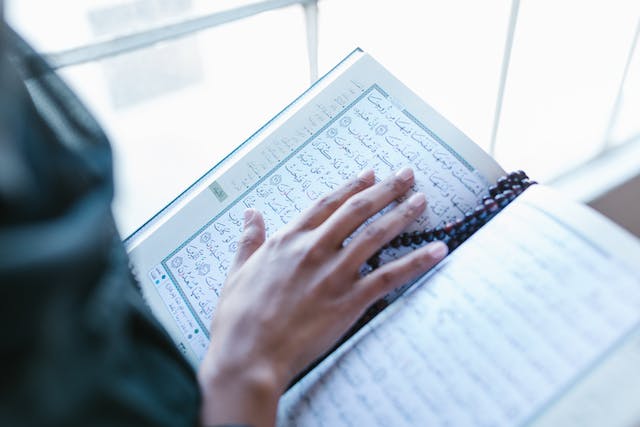Can You Read Quran Without Wudu?
Many Muslims around the world often wonder: Can you read Quran without Wudu (ablution)? Daily life, work, travel, or unexpected circumstances sometimes make it difficult to maintain ritual purity. While Wudu is essential for prayer, the rules for Quran recitation differ slightly depending on the Islamic school of thought.
In this article, we’ll explore the Hanafi perspective on reciting the Quran without Wudu, clarify what is permissible, and provide practical guidance for Muslims in everyday life. We’ll also cover common scenarios, authentic Quranic references, Hadiths, and FAQs to give you a complete understanding.

What is Wudu and Its Importance?
Wudu, or ablution, is the ritual washing of specific body parts (hands, mouth, nose, face, arms, head, and feet) before prayer. It purifies the body and mind, creating a state of readiness for worship.
While Wudu is mandatory for Salah (prayer), many wonder if it is also required to touch, hold, or recite the Quran. In the Hanafi school, scholars have carefully distinguished between holding the Mushaf (physical Quran), reading from memory, and reciting digitally.
Quranic Verses and Hadith on Purity and Quran Recitation
The primary evidence for touching the Mushaf comes from the Quran:
“None shall touch it except the purified.”
(Surah Al-Waqi’ah 56:79, Sahih International translation)
This verse emphasizes the importance of purification. Scholars interpret “purified” to mean one should have Wudu when directly handling the Mushaf.
Authentic Hadiths support this:
- The Prophet Muhammad ﷺ said:
“The one who is in a state of major impurity should not touch the Quran.”
(Sahih al-Bukhari & Sahih Muslim, summarized for context)
Scholars use these references to explain why Wudu is required when physically handling the Quran.
Hanafi Ruling: Reading the Quran Without Wudu
The Hanafi school makes a clear distinction between:
- Reciting from memory (without touching the Mushaf)
- Permissible to recite the Quran without Wudu, as long as you are not holding the physical Mushaf.
- During travel or in classrooms, recitation is allowed. When teaching students, recite from memory or point to a digital Quran.
- Reciting while holding a physical Mushaf
- One must be in Wudu to touch the pages.
- If Wudu is not possible, scholars advise reading from a digital Mushaf or memorized text.
- Reciting from digital devices
- Reading Quran on a phone, tablet, or computer is allowed even without Wudu.
- The physical device is not considered the Mushaf in the Hanafi view, so recitation remains valid.
- During major impurity (janabah) or menstruation
- You should not touch a Mushaf directly.
- Reciting from memory or listening is allowed.
Key takeaway: In the Hanafi school, holding a Mushaf without Wudu is not permitted, but reciting from memory or digital platforms is fully allowed.
Practical Scenarios for Muslims
Scenario 1: No Wudu, but want to recite
- Solution: You can recite from memory or use apps like Quran Companion or Quran Explorer. Holding a physical Mushaf requires Wudu. Digital devices allow recitation even without Wudu.
Scenario 2: Travel or office setting
- Solution: Carry a digital Quran on your smartphone; recitation without Wudu is valid.
Scenario 3: Teaching Quran
- Solution: You may teach or demonstrate Quran recitation from memory or by pointing at a digital Quran, avoiding direct contact with the Mushaf if Wudu is unavailable.
Scenario 4: Menstruation or post-janabah state
- Solution: Listen to the Quran, recite from memory, or read translations. Physical handling is restricted until purification.
These practical solutions make it easier for Muslims to remain consistent with their spiritual practice without breaking Hanafi rulings.
Etiquette and Spiritual Benefits of Maintaining Wudu
Even when not strictly required, maintaining Wudu while reading the Quran has spiritual and psychological benefits:
- Enhances concentration and mindfulness during recitation.
- Encourages respect and reverence for Allah’s words.
- Strengthens the habit of purification before worship.
Although reciting without Wudu is allowed in some situations, scholars recommend maintaining Wudu whenever possible to strengthen your spiritual connection.
FAQs About Reading the Quran Without Wudu
Can I touch the Quran with gloves if I don’t have Wudu?
- Some Hanafi scholars permit using gloves or a barrier when handling the Mushaf. However, it is better to wait until Wudu is done.
Can I read a translation of the Quran without Wudu?
- Yes, translations are not considered the Mushaf, so you can read them freely.
Can children recite the Quran without Wudu?
- Yes, especially when learning or memorizing Quran, as the focus is on learning rather than formal recitation.
Is listening to the Quran valid without Wudu?
- Absolutely. Listening is not restricted by Wudu, and it remains a source of blessing and guidance.
What if I accidentally touch the Mushaf without Wudu?
- Repent, perform Wudu as soon as possible, and continue your recitation from memory or digital Quran.
Can you read Quran on phone without Wudu?
- Yes, reading the Quran on a phone or digital device is allowed without Wudu in the Hanafi school, as it’s not a physical Mushaf.
Conclusion: Best Practices for Muslims
To summarize on reading the Quran without Wudu:
- ✅ Permitted: Reciting from memory, digital Quran, listening to recitation.
- ❌ Not permitted: Directly touching a physical Mushaf without Wudu.
- ✅ Advisable: Maintain Wudu whenever possible for spiritual benefit.
- 💡 Tip: Keep a digital Quran for easy access when Wudu is not possible, especially during travel, work, or busy schedules.
By following these rulings, UK Muslims can continue their spiritual practice respectfully while adhering to Hanafi fiqh.
Islamic Disclaimer: This article is for educational purposes only. For personal rulings and guidance, consult a qualified local scholar or imam.







